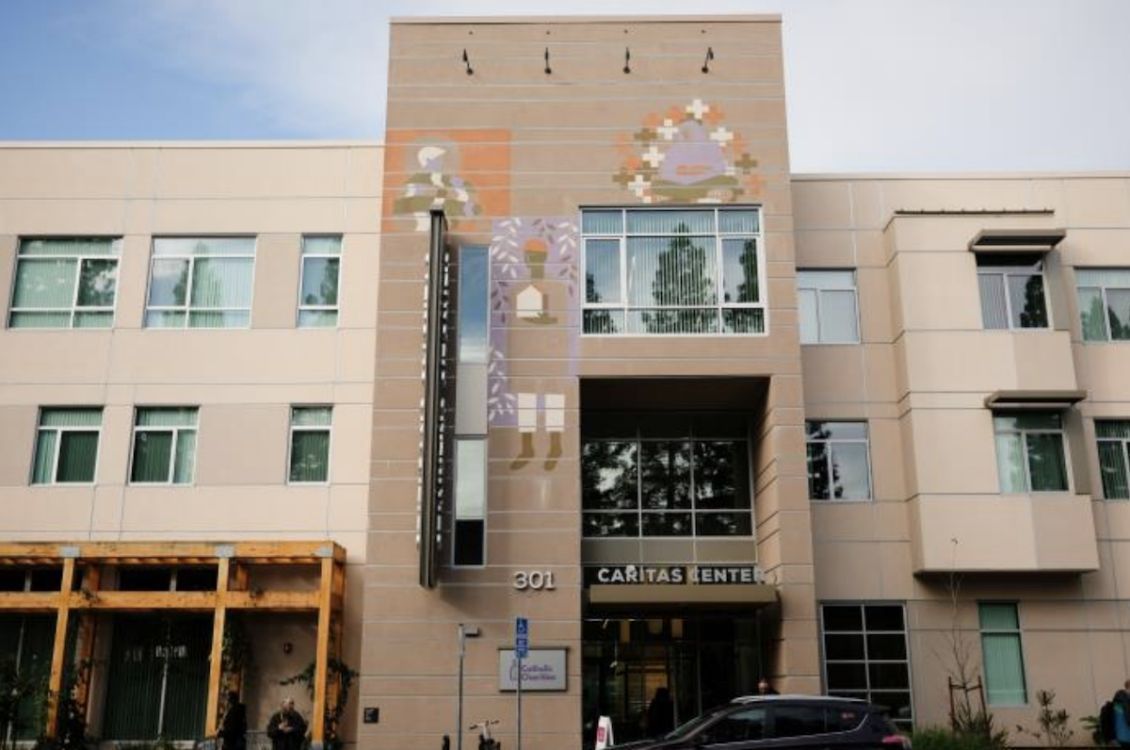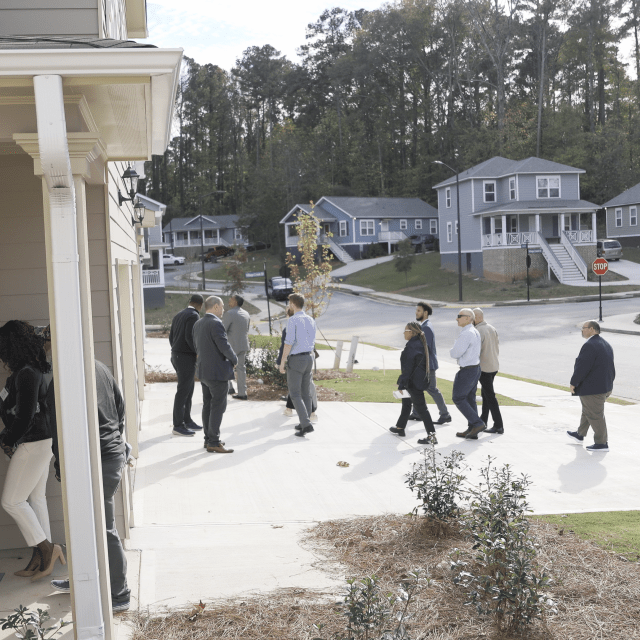California Gov. Gavin Newsom released his revised budget proposal (May Revise) earlier this month, initiating final budget negotiations with the Legislature. The May Revise provides an updated outlook on California’s budget deficit, with a larger estimated shortfall of $56 billion. We commend the Governor for including the critical state low-income tax credit in the May Revise. However, the proposal balances the budget through cuts, deferrals, and the use of reserves, including significant cuts to other affordable housing and homelessness programs. On May 29, the Legislature released its budget response, which seeks to restore several of the cuts proposed by the Governor.
The Legislature and the Governor must now come to an agreement on a final budget, and advocacy during the next several weeks is critical to ensuring that affordable housing and homelessness programs receive much-needed funding.
Enterprise will continue to work with our partners in the community and in Sacramento to identify solutions that account for the state’s fiscal challenges, while also prioritizing funding for affordable housing and homelessness at a time when the need is significant up and down the state.
Governor’s May Revise
The Governor’s May Revise proposed to restore $500 million to the state low-income housing tax credit program. This is a significant victory for a core affordable housing program that is critical to our production and preservation efforts, as well as essential for leveraging federal dollars for greater impact. Thank you to everyone who has worked to champion this program and to the Administration for prioritizing this program in the May Revise.
While we are grateful for the continued funding for this program, the May Revise also included significant additional cuts and falls short of the necessary investments for affordable housing production and preservation. Specifically, the Governor’s revised budget includes the following additional cuts to core housing production, preservation, and homelessness programs in addition to those proposed in January:
- Homeless Housing, Assistance and Prevention (HHAP) Grant Program – One time reduction of $260 million in 2025-26 for HHAP Round 5 supplemental grant funding and no funding for HHAP Round 6.
- Multifamily Housing Program – Eliminating the remaining $75 million in 2023-24 for this program, in addition to the $250 million proposed cut in the Governor’s January Budget.
- Foreclosure Intervention Housing Preservation Program – Eliminating the remaining $236.5 million in 2023-24 for this program, in addition to the $237.5 million proposed in the Governor’s January Budget, which would result in no funding available for the program.
- Behavioral Health Bridge Housing Program – Reducing $132.5 million in 2024-25 and $207.5 million in 2025-26 for the Behavioral Health Bridge Housing Program.
- Adaptive Reuse Program – Reducing $127.5 million in 2023-24, which would result in no funding available for the program.
This is on top of previous cuts to additional housing programs from the January proposal:
- Regional Early Action Planning Grants 2.0 (REAP 2.0) – A $300 million reduction
- Infill Infrastructure Grant Program – A $200 million reduction
- Veteran Housing and Homelessness Prevention Program – A $50 million reduction
- Housing Navigation and Maintenance Program – A $13.7 million reduction
Legislature’s Proposal
On May 29, the Legislature released their budget response, which seeks to restore several of the cuts proposed by the Governor. We commend the Legislature for their leadership to prioritize affordable housing and homelessness, recognizing the severe need across the state. The Legislature’s proposal recommends restoring the following programs:
- Maintain $500 million for state low-income housing tax credit
- Restore $325 million for the Multifamily Housing Program (MHP)
- Restore $1 billion for Round 6 of the Homeless Housing, Assistance and Prevention (HHAP) Grant Program
- Restore $250 million for Regional Early Action Planning Grants 2.0 (REAP 2.0)
- Restore $13.7 million for the Housing Navigation and Maintenance Program
While this proposal is a significant step forward and a victory for affordable housing, the Legislature’s proposal would still maintain cuts in several critical affordable housing and homelessness programs. The Foreclosure Intervention Housing Preservation Program, for example, is an important new preservation and anti-displacement program, and it would be left without any funds under this proposal. You can learn more about this program and why it is important in our recent blog.
What’s Next
This marks the beginning of the final phases of budget negotiations between the Governor and the Legislature, and it is critical that the California State Budget reflects housing as a priority. The Legislature must pass their balanced budget by June 15, and the Governor must sign the final agreement by July 1.
We look forward to working closely with the Governor, the Legislature, and our broad multi-sector coalition of affordable housing, homelessness, and housing justice advocates to urge for the restoration of investments for affordable housing and adopt a state budget that responds to the urgent housing needs of Californians.
Continued engagement with Legislative leaders as well as the Governor is critical at this time to ensure that affordable housing and homelessness remain top priorities.
Beyond the Budget
Looking beyond the state budget, which continues to be volatile and unpredictable, there are several additional opportunities for resources that Enterprise is currently engaged on. These efforts require action both in the legislature as well as on the November 2024 ballot.
- State Affordable Housing Bond, as proposed in AB 1657 by Asm. Buffy Wicks. Polling conducted last month showed that a state affordable housing bond has strong support among California voters. In addition, recent research from Enterprise found that without significant investments in affordable housing, nearly 47,000 affordable homes across the state will stall.
- Constitutional Amendment to Set Voting Threshold to 55%. Last year, the Legislature referred ACA 1 (Aguiar-Curry) to the November 2024 statewide ballot to authorize local communities to raise the resources they need to meet pressing affordable housing and infrastructure needs with 55 percent voter approval, the same as for school bonds. But the Legislature must revise the measure this legislative session to ensure that affordable housing projects will be able to provide the supportive services some residents need to stay housed, and to address voter concerns by narrowing the range of funding mechanisms the measure allows.
- Regional Affordable Housing Bond. Winning ACA 1 would be a landmark change, making it much easier to pass the proposed $20 billion 9-county Bay Area bond measure that would deliver a historic influx of resources for affordable housing and homelessness solutions through the Bay Area Housing Finance Authority (BAHFA). This bond could help create or preserve 72,000 new homes across the Bay Area.

